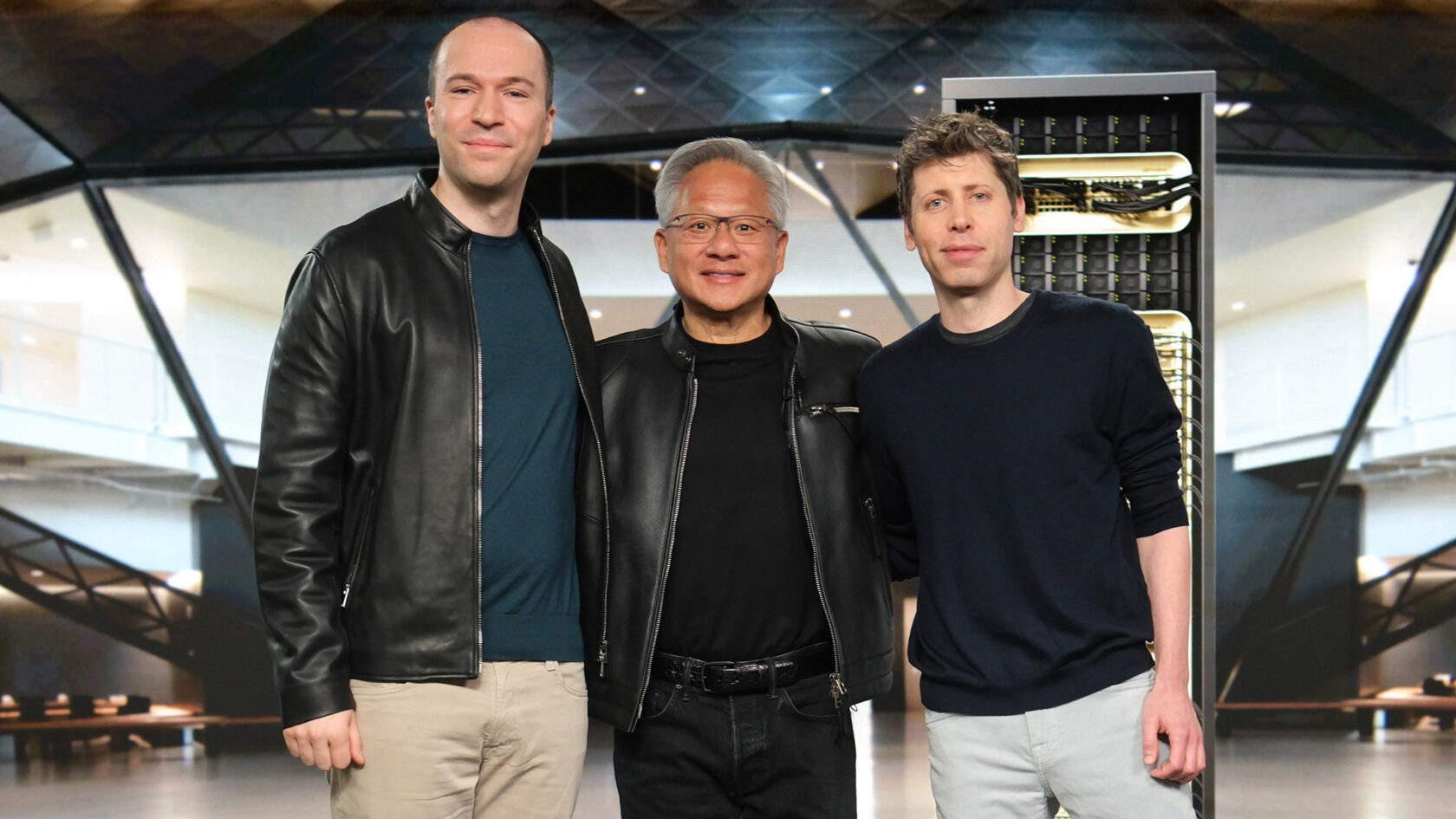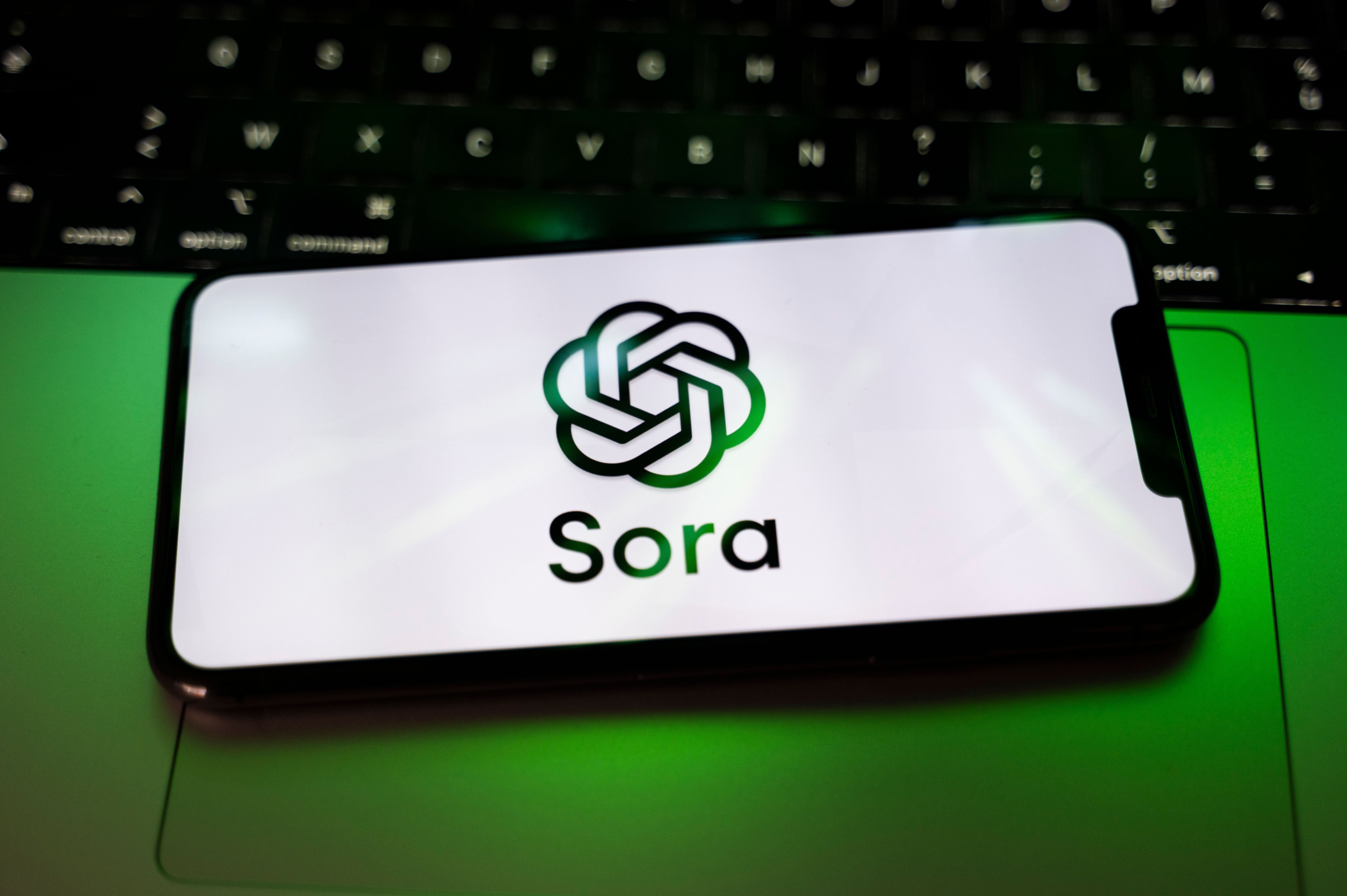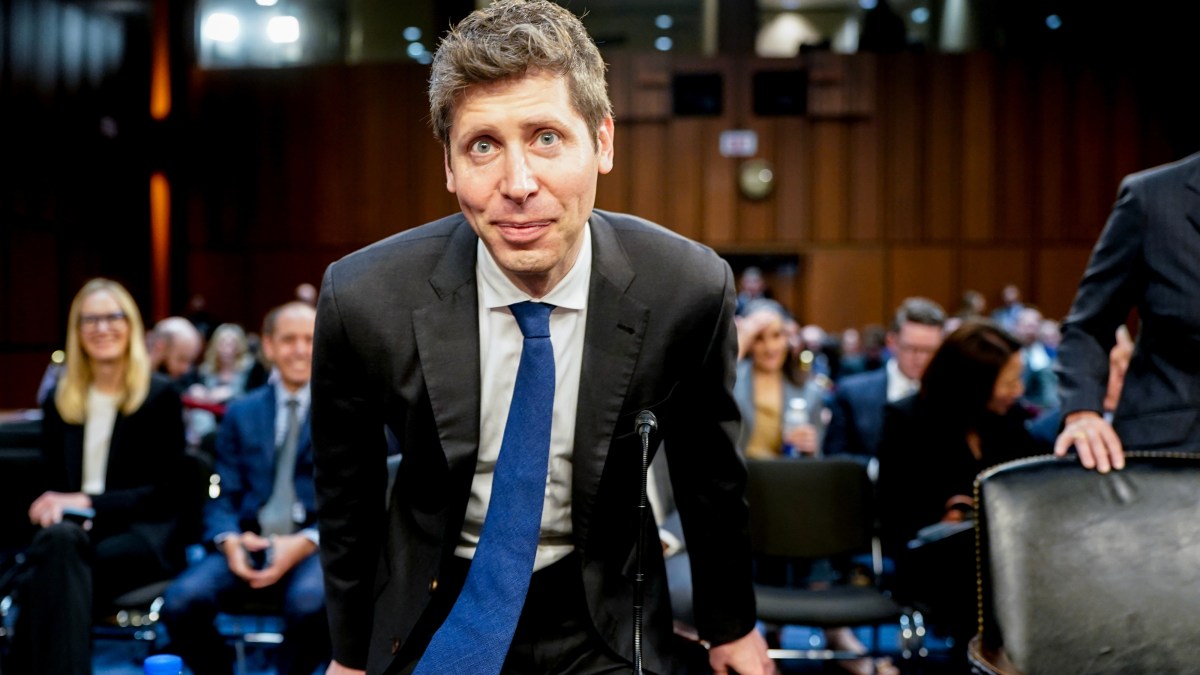You have to wonder whether Sam Altman ever sleeps. In the past four weeks, the billionaire chief executive of OpenAI — and father to a new-born baby — has signed chips and data-centre deals worth more than $500 billion with Oracle, Nvidia and Advanced Micro Devices (AMD).
He has also rolled out a new social media app, Sora 2, that allows people (in America and Canada) to make AI-generated videos of themselves — a shot across the bow of TikTok. Meanwhile, a new “Instant Checkout” feature, launched at the end of September, allows users to buy products from five million shops managed by ecommerce giant Shopify — without ever leaving OpenAI’s ChatGPT app.
Days after this, the company unveiled a capability to integrate other apps, allowing users to create a Spotify playlist or search for homes with Zillow (the equivalent of Rightmove) from, again, inside ChatGPT. It even rivals YouTube by serving up videos in its search results.
• Nvidia to invest up to $100bn in OpenAI to build data centres
While some of those features, announced at OpenAI’s demo day in San Francisco last week, are rolling out gradually, the plan is coming into focus: to collapse the chaos of the web, with its limitless pages, into a single interface.
Marc Andreessen, the famed billionaire tech investor, famously wrote at the dawn of the social media era that “software is eating the world”. Altman? He appears to be trying to eat the entire internet, by turning ChatGPT into the “everything app” to rule them all — a singular tool that people can turn to as their personal assistant, travel agent, confidant, legal adviser, doctor and personal shopper.
• Silicon Valley’s AI-fuelled madness has echoes of the dotcom crash
The 40-year-old’s quest is both wildly ambitious and, at its heart, quite simple. “Most people will want to have one AI service, and that needs to be useful to them across their whole life,” he said last week to Ben Thompson of the technology site Stratechery. “I do feel like this is a once-in-a-lifetime opportunity for all of us and we’ll take the run at it.”
ChatGPT is now used by more than 800 million people each week, and it was launched only just under three years ago in November 2022. Despite OpenAI’s internal projections that it will burn through $115 billion (£85 billion) in cash between now and 2029, such is the pace of its growth that a recent share sale valued the company at $500 billion — 35 times its value just three years ago.
Stratechery’s Thompson posited that Altman is apeing Bill Gates by turning ChatGPT into the dominant “operating system” of this new age. “OpenAI is making a play to be the Windows of AI,” Thompson said. At its height, Windows was used on more than 80 per cent of the world’s personal computers.
Underlying Altman’s blitz is what former Google chief executive Eric Schmidt has dubbed the “San Francisco consensus”: the belief that OpenAI, and a handful of rivals, will very soon create artificial general intelligence (AGI), or “superintelligence” — AI tools that are better than humans at all cognitive work.

Altman poses with OpenAI’s president Greg Brockman and Nvidia’s Jensen Huang on the day of the announcement of the $500 billion tie-up with the chipmaker
NVIDIA
Under this vision, “agents” — autonomous AI applications that do things on your behalf — would spring up by the billions, doing in seconds what humans might do in hours or days, and for a fraction of the cost. Everyone would suddenly be endowed, in effect, with a personal AI workforce marshalled by a preferred chatbot, diverting money away from the humans whom you might once have paid for that work.
“If you have a couple of entities that actually crack AGI, these entities will make more profit than anything we’ve ever seen,” Alex Blania, chief executive of World, the digital identity start-up founded by Altman six years ago, told The Sunday Times in 2023. “You’re talking about a significant percentage of global GDP [gross domestic product].”
That belief, both in the power of the technology and the size of the opportunity, is why the AI bubble has been inflated so quickly. It is why Thinking Machines Lab — a revenue-free start-up, launched by OpenAI co-founder Mira Murati, that launched its first product just days ago — can be valued at $12 billion. Ruchir Sharma, a writer and investor at the equity research firm Rockefeller International, recently estimated that 40 per cent of America’s GDP growth this year was due to AI spending.
• OpenAI’s former tech boss Mira Murati launches own start-up
For Altman, the tip of the spear is forging the world’s dominant AI super-app. “We’ve gone from people’s entire world [being] social media, which was pretty awful but at least there was a chance of diversity,” said Hany Farid, a professor at UC Berkeley School of Information at the University of California.
“The thing about these large language models [the basis for the likes of ChatGPT] is that there are going to be a relatively small number of winners, because you need massive computing, massive data, massive infrastructure. Your entire online existence is going to be funnelled through, essentially, four or five billionaires who control the key players. I worry about that consolidation of power. I think it’s dangerous.”
The notion of “super-apps” is not new. WeChat, in China, is indispensable; people rely on it to make calls, shop, hail cabs, pay bills, read news and play games. There is no such app in the West, where antitrust regulation and fierce competition have kept any one company from consolidating power to that degree.

Video-creation app Sora is being touted as a challenger to TikTok
SAMUEL BOIVIN/SHUTTERSTOCK
What makes this moment different is the nature of AI itself. It is human-like — a conversational engine inviting intimacy and trust; that one of the prime-use cases of these systems is therapy speaks to just how different the technology is from what has come before. And AI is also already better than most non-specialists at most things.
• Chatbot therapists are here. But who’s keeping them in line?
Where Altman has sprinted to a lead is by beginning to gather the disparate strands of our digital lives, spread across countless apps and services, and to thread them into a single product.
There is, of course, a cost. Disturbing anecdotal evidence is mounting that shows how chatbots are assuming outsized roles in people’s lives, with sometimes devastating results. The parents of 16-year-old Adam Raine sued OpenAI in August, alleging that the chatbot pushed him toward suicide. Reports of AI “psychosis”, where chatbots have been found to egg on people suffering from delusions, are on the rise.
Young graduates, meanwhile, are finding it harder to land jobs because companies are paying ChatGPT, Claude and other bots to handle rote tasks that not long ago were the province of young people.
• Inside the battle for graduate jobs: ‘We have Firsts but no work’
Yet the prize is so vast that Altman and his ilk are ploughing ahead regardless. “We’re basically doing the same thing we did with social media,” Farid said. “Early on, there were signs that something was not right, but we kept moving fast and breaking things.”
Altman is undeterred. But he is not trying to create the “Windows of AI”; he is eyeing something even more fundamental. “My favourite historical analogy [for AI] is the transistor,” he said, referring to the building block of modern life. “I think it will just kind of seep everywhere into every consumer product and every enterprise product.”

